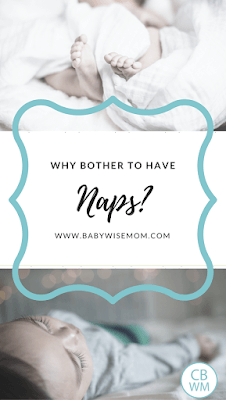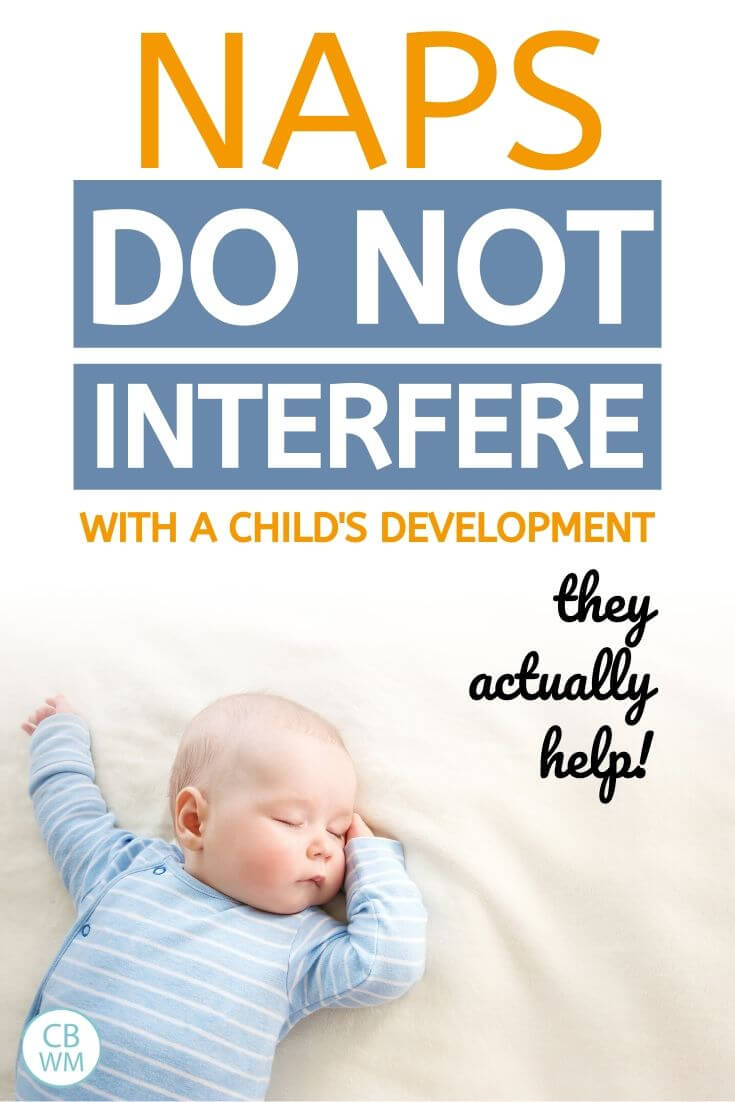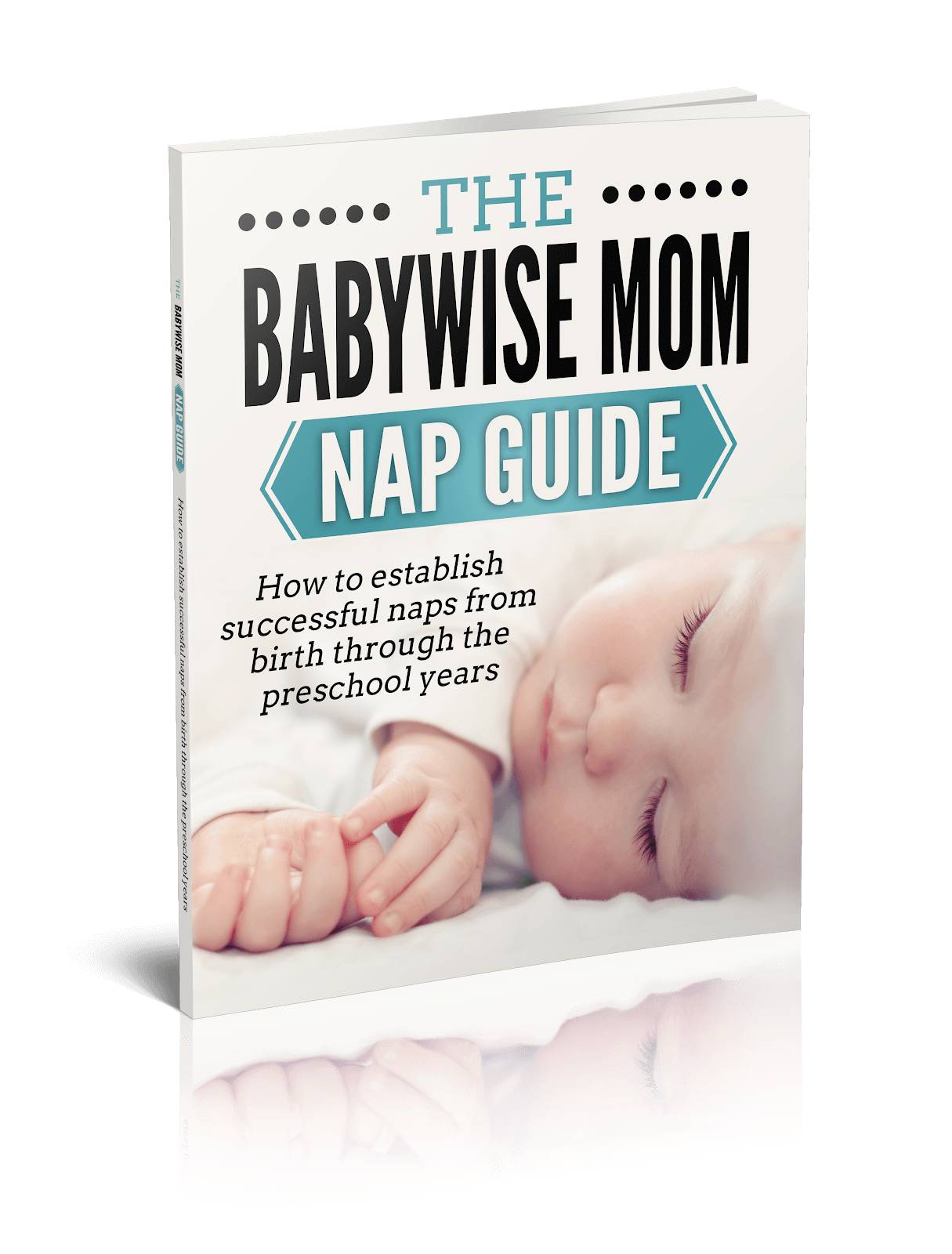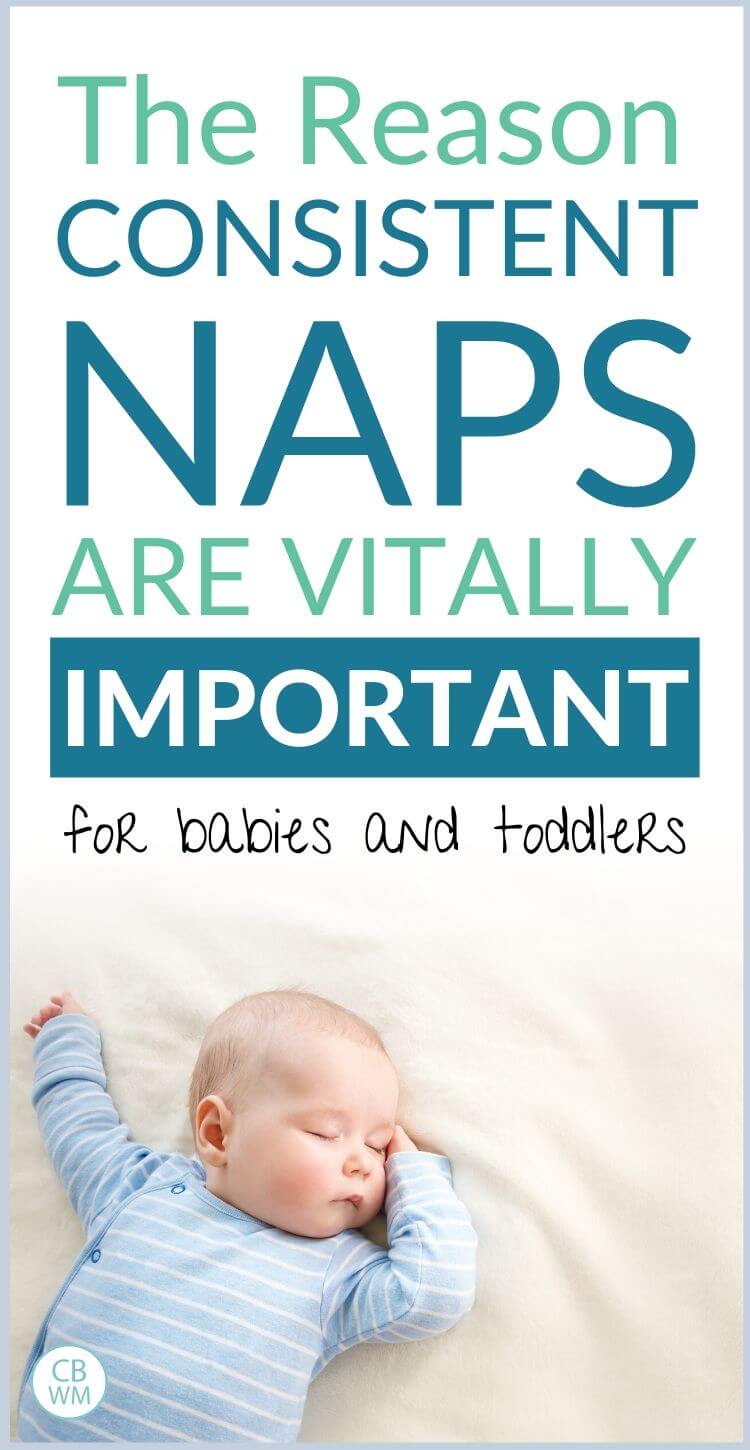Striving to have your baby or toddler have consistent naps is not an easy task, but it is vitally important. Here is why.

If you are a parent trying to establish good sleep habits and working on naps every day, there is a chance you have fantasized about the possibility of not stressing over naps.
Couldn’t you just wait until the baby was 6 months old to worry about naps and then you could focus on two or three naps rather than four or five?
Or if your two or three year old is giving you trouble, couldn’t you just forget about naps? Is it really worth the fight? It would make that time before nap each day so much more tolerable.
>>>Read: What to Do When Your Toddler Cries at Nap Time
Maybe you dream of leaving the house at a whim with no concern as to getting home or to your destination in time for your child to nap…
I think most, if not all, of us have had thoughts like these.
Establishing naps is hard work. There can be times maintaining naps is hard work. It realy isn’t fun to stay home most of the day so your little one can nap.
Maybe you are willing to put in the work and sacrifice for naps, but you worry about your child’s ability to learn because of all the sleep. How will he ever learn and accomplish the skills he is supposed to if he is sleeping all day long? I get this question quite often.
Adding to the difficulty is the general lack of respect toward sleep. Societies like The United States have little to no respect for sleep, much less naps. We push ourselves to the limit, ignoring our sleep needs, and then naturally spill that over onto our children.
We often view naps as a waste of time.

Post Contents
The Reason Naps are Important
Considering these concerns, why bother? Why have naps? Why do we do this?
If you are prone to this line of thinking, I highly, highly recommend Healthy Sleep Habits, Happy Child
Sleep Helps Learning
Weissbluth says, “I believe that healthy naps lead to optimal daytime alertness for learning–that is, naps adjust the alert/drowsy control to just the right setting for optimal daytime arousal” (page 28).
He also points out, “Without naps, the child is too drowsy to learn well” (page 28).
Weissbluth claims that children who don’t get enough sleep end up fussy or hyper-alert and cannot learn from the environment.
The child who naps in the day is awake less and has less time to devote to learning, but the child who does not nap is not able to focus and learn while awake.
So minute for minute, the child who naps gains more than the child who doesn’t nap.
I believe this is true. I watched my babies sleep a lot, but also learn a lot. They were very alert when they were awake.
I believe my children are reaching the height of their potential when it comes to learning because they are well-rested.
And it just makes sense logically.
Children are people right? Adults are people, too. You, the parent, are an adult. How do you feel when you didn’t sleep enough the night before? Can you focus well? What do you want to do that day? Do you feel like reading a book or watching TV? If an adult is “in a fog” with not enough sleep, then it stands to reason a child will be, too.
Infants who get enough sleep often get comments on how alert they are. “She doesn’t miss a thing!” “She notices everything going on around her!” I have heard these comments often over the years.
“Infants who take long naps have longer attention spans” (page 60) and “…they seem to learn faster” (page 60).
“It is a myth that long naps interfere with acquiring socialization skills or infant stimulation” (page 60).
Did you know that studies done have found children with higher IQs sleep longer? Studies have also found children with higher grades sleep longer (page 61).
And is it much longer? No.
One study found that brighter children slept 30-40 minutes longer each night (page 61). That isn’t much time.
And studies done on sets of twins where one slept longer than the other showed that the twin who slept more had higher test scores at age ten than the twin who slept less.
Weissbluth points out that depriving your child of sleep either to avoid conflict or engage in social outings is not “harmless.” “…day-in, day-out sleep deprivation at night or for naps, as a matter of habit could be very damaging to your child.
“Cumulative, chronic sleep losses, even of brief duration, may be harmful for learning“.
(page 62)
Do notice that he says “chronic.” He does say it is okay once in a while, but it shouldn’t be your routine.
>>>Read: How Sleep Benefits the Brain and Physical Development

Naps Are Important
But that is the simpler part of the process. Naps do more for the brain than simply allow it to focus. It isn’t just about the right about of sleep over all–naps are important.
Weissbluth gives much information on how naps are different from nighttime sleep. “Naps are not little bits of night sleep randomly intruding upon children’s awake hours” (page 26).
Not only that, different naps in the day accomplish different tasks. “When children do not nap well, they pay a price” (page 32).
The morning nap has the most REM sleep. “Research shows that high amounts of REM sleep…help direct the course of brain maturation in early life” (page 29). REM sleep also restores us emotionally and psychologically.
Non-REM sleep is more important for physical restoration.
Stress is reduced during naps (page 31). Not taking the nap that is needed means that the body remains stressed.
What else?
Babies “…between 4-8 months old who do not nap well have shorter attention spans or appear less persistent when engaged in activities” (page 32).
By age three, “…children who do not nap or nap very little are often described as nonadaptable or ever hyperactive” (page 32). The three year old who naps will be able to adjust in life much easier than the three year old who does not nap (page 61).
Lots of information on why naps are valuable and important.
>>>Read: Sleep Begets Sleep? The Truth About Baby Sleep
A Word of Encouragement for the Mom of the Anti-Sleeper
Please don’t read this information and freak out if your child is not the “perfect” sleeper.
This information is here to give you the boost you need to continue to work on giving your child the opportunity for optimal sleep. You can’t force a child to sleep, but you can provide the right opportunities for sleep.
Give your little one the chances to sleep and the time and place to nap, then you will have done all you can do.
Conclusion
Respect the nap. It is of value. It is worth the effort it takes you to establish good naps. It is worth the effort it takes you to maintain good naps.
It is worth hearing your three year old say, “I don’t want to take a nap. Never, ever, never!” and you say, “I know, but you need to” and follow through.
Is she going to kiss you and thank you for sticking to the rule that she nap? No. But she might kiss you and be happy later in the day just because she is in a good mood after taking the nap.
Napping will not damage your child’s intelligence. It will only improve it.
Naps are worth it!
RELATED POSTS
- How to Fix Your Child’s Sleep Deficit
- The Complete Guide to Troubleshooting Short Baby Naps
- When Do Kids Stop Napping
- What to Do When Baby Wakes Early From Naps or Won’t Fall Asleep For Nap
- Healthy Baby Sleep Elements and Developments



